Agenda
May 1-2, 2024 · Boston, MA
All-Access Pass Holders can attend all agenda sessions and will have access to speaker presentations after the event. Agenda sessions are subject to change. Check back often for updates and additions.
Register Now
- All Topics
- Bringing Products to Market
- Engineering Theatre
- Innovation & Investment Forum
- Keynote
- Manufacturing & Materials
- New Product Development
- New Tools & Tech
April 30, 2024
TuesdayMay 1, 2024
WednesdayMay 2, 2024
Thursday
- 3:00 PM - 5:00 PM
Robots and Beyond
Welcome to Medtronic … in Boston. Locally, we design software to power soft tissue surgical robotics aiding surgeons in designing the future of surgery and more. Robots. Artificial intelligence. Real-time. Remote. These capabilities are shaping how we engage with one another and expected outcomes. Join Medtronic for a facility tour and networking opportunity bringing together those equally passionate about a robot and beyond future. Robot enthusiasts welcome! ***This exclusive networking workshop and Boston facility tour is limited to 50 guests and tickets will be given out in a random drawing to registered attendees of DeviceTalks Boston. Those selected will be notified by April 10.WhereMedtronic - 5:00 PM - 7:00 PM
Take Me Out to the Ballgame Welcome Reception
Step up to the plate and join us for a home run of networking opportunities at our baseball-themed welcome reception! Connect with industry professionals, swing by for lively conversations, and hit it out of the park with new connections while enjoying the spirited ambiance of America’s favorite pastime. Light food and drinks will be served. Don't forget to wear your favorite baseball team's apparel - show us who you're rooting for! Tickets required; free to sponsors and speakers, $35 for All-Access and Expo Only pass holders that purchase pre-event. $50 tickets purchased on site.Where160ABC
- 8:30 AM - 6:00 PM
Registration Hours
Sponsored By
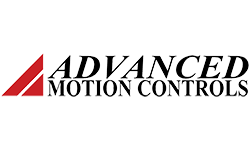
 9:00 AM - 9:10 AM
9:00 AM - 9:10 AMWelcome Address
By Tom Salemi Editorial Director | DeviceTalks, Paul Grand CEO | MedTech InnovatorDeviceTalks Editorial Director, Tom Salemi and MedTech Innovator CEO, Paul Grand welcome attendees to DeviceTalks Boston 2024.Where160ABC 9:10 AM - 9:25 AM
9:10 AM - 9:25 AMWhere Will Medtech See Growth and Opportunity
By Matt Griffiths Director of Innovation Banking Healthcare | HSBCThe past two years have been tumultuous for the medical device industry. Join us for a review of the recent data analyzed by HSBC Innovation Bank to get a better understanding of what’s to come for startups and large OEMs.Where160ABC 9:25 AM - 10:00 AM
9:25 AM - 10:00 AMHow BD Innovation is Fueling the Future of Care
By Elizabeth McCombs Executive Vice President and Chief Technology Officer | BD, Tom Salemi Editorial Director | DeviceTalksFor two decades, Elizabeth McCombs has been driving the development of new medical devices. As EVP and Chief Technology Officer at BD, McCombs now is responsible for overseeing BD’s innovation pipeline and executing on the company’s strategy to power smarter, more connected care within the hospital and in new settings, like the home, while promoting better outcomes for patients living with chronic illnesses. In this discussion, McCombs will share her career journey and explain how BD is deploying new tools, technologies, and methodologies to get the job done.KeynoteWhere160ABC- 10:00 AM
Exhibit Hall Opens
- 10:00 AM - 10:30 AM
Networking Break
WhereExhibit Hall C 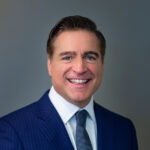 10:30 AM - 11:15 AM
10:30 AM - 11:15 AMHow Boston Scientific Looks to Transform the Future of Electrophysiology
By Nick Spadea-Anello Global President, Electrophysiology | Boston Scientific, Sean McNulty Vice President, R&D, Electrophysiology | Boston ScientificIn this session, Boston Scientific leaders will delve into the challenges and triumphs in designing and commercializing the transformative FARAPULSE Pulsed Field Ablation System. They will discuss the strategic development and clinical advantages of this innovative technology, emphasizing its ability to target cardiac tissue while minimizing the risk of collateral damage to vital structures. With a keen eye on the future, they discuss the vision for expanding PFA’s applications, including its potential role in treating a broader spectrum of arrhythmias and transforming patient lives around the world.Bringing Products to MarketWhere159 10:30 AM - 11:15 AM
10:30 AM - 11:15 AMMedTech Innovator All-Stars, Session 1: Stare & Repair
By Peter Bauer President & CEO | VisCardia, Jon Greenwald Co-founder & CEO | Caira Surgical Corp, Douglas Stoakley Co-Founder, President, & COO | ClearCam Inc., Peter Fischer, PhD President and CEO | InkSpace Imaging, Laura Yecies CEO | Bone Health Technologies, Tyler Melton CEO and Co-Founder | Corveus Medical, Brian Hess CEO | RevBio, Inc. 10:30 AM - 11:15 AM
10:30 AM - 11:15 AMManufacturing Devices to Make Healthcare Better: Additive Manufacturing
By Naomi Murray Senior Director of Disruptive Research Solutions | StrykerStryker, a global leader in medical technologies, has been at the forefront of additive manufacturing innovation for more than a decade. Stryker’s mission – together with our customers, we are driven to make healthcare better – provides a north star for culture and living our purpose. Stryker’s Global AMagine® Institute has led the industry in developing cutting-edge additive manufacturing technology, resulting in game-changing products to make healthcare better. This talk will delve into how Stryker uses additive manufacturing to develop, industrialize and innovate new healthcare solutions across joint replacement, spine, and other medical applications.Manufacturing & MaterialsWhere162A 10:30 AM - 11:15 AM
10:30 AM - 11:15 AMThe Power and Potential of Connectivity
By Samy Sidhom, MD, MPH Associate Chair of Specialties and Chief of Pulmonary Medicine | Atrius Health, part of Optum, Robin Goldsmith Global Lead, Health Innovation & Strategy | Verizon Business, Najia Khawar Senior Director of the PMO | Baxter International, Donny Patel Chief of Digital Platforms & Innovation | BaxterBaxter’s Chief of Digital Platforms & Innovation Donny Patel will lead a conversation around connected care – the current landscape, the opportunities and challenges the industry faces in advancing connected care, and what the future looks like for device connectivity in the hospital setting and beyond.New Tools & TechWhere162B 10:30 AM - 11:15 AM
10:30 AM - 11:15 AMWhat New Materials, Interfaces Will Advance Neuro Technologies
By Shriya Srinivasan, PhD Assistant Professor | Harvard University, School of Engineering and Applied Sciences, Kurt Haggstrom Chief Commercial Officer | Synchron, Imran Eba Partner | APVC, Carolina Aguilar CEO & Co-Founder | INBRAIN NeuroelectronicsNew materials, innovative interfaces, bold new application for neurotechnology is supercharging this once promising, but sleepy sector. Hear why investors, innovators, and researchers see enormous potential in having devices help the human body perform better.New Product DevelopmentWhere161 11:00 AM - 11:30 AM
11:00 AM - 11:30 AMMDR Extension Deadline – the 11th Hour?
By Greg Jacobson Sales Director – Medical Devices | SGS, Ibim Tariah, PhD Technical Business Development Director – Medical Devices | SGS North AmericaIn light of reports from healthcare professionals about the imminent risk of shortages of devices, Regulation (EU) 2023/607 was adopted by the EU authorities in view of the exceptional circumstances arising from an imminent risk of shortages of medical devices and the associated risk of a public health crisis. It became necessary to extend the validity of certificates issued in accordance with Directives 90/385/EEC and 93/42/EEC and to extend the transitional period during which devices that are in conformity with those Directives can lawfully be placed on the market. This presentation covers the background that led to the current situation, eligibility- and key- requirements of the amending regulation, practical considerations on how to meet the May 26th 2024 deadline and potential impact to your business.
Sponsored By
 Engineering TheatreWhereEngineering Theater
Engineering TheatreWhereEngineering Theater 11:30 AM - 12:15 PM
11:30 AM - 12:15 PMFast-Tracking FDA Approvals: The Emerging Role of In-Silico Clinical Trials in Medical Device Innovation
By Ellen Roche, Ph.D Professor | MIT, Mohan Thanikachalam, MD CEO | Dynocardia, Inc, Afrah Shafquat Senior Data Scientist AI | Medidata, Steven Levine, PhD Sr. Director, Virtual Human Modeling | Dassault Systèmes, Dr. David Hoganson Cardiac Pediatric Surgeon | Boston Children’s HospitalIn tandem with AI, the transformative potential of computational modeling and simulation is set to revolutionize clinical trials, providing a compelling vision of how these advanced digital technologies can minimize risks, cut costs, and expedite the product approval process.
Medical device development has already employed modeling and simulation for product development and early-stage product testing. The latest advances now allow for continued operations in virtual environments throughout the clinical trial stage. This includes generating virtual patient cohorts for treatment arms and synthetic patients for control arms, offering an innovative approach to trial design, and streamlining the assessment of novel treatments.
This session will explore the convergence of these technologies and present compelling evidence of progress, including recent collaborative efforts with the FDA in developing a groundbreaking blueprint for utilizing these advanced approaches, representing a significant step towards a more efficient and patient-centric future in device development.
Sponsored By
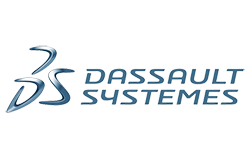 New Product DevelopmentWhere161
New Product DevelopmentWhere161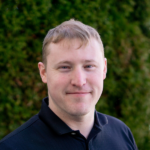 11:30 AM - 12:15 PM
11:30 AM - 12:15 PMNavigating Complex MedTech Design Landscapes
By David Sonnenshein Principal Electrical Engineer, Technical Lead | Emphysys, A Tecan Group Company, Dan Smith Director of Modeling and Simulation | Emphysys, A Tecan Group Company, Sam Bruce Sr. Mechanical Engineer and Program Manager | Emphysys, A Tecan Group Company, Jed Palmer Principal Mechanical Engineer and Program Manager | Emphysys, A Tecan Group Company, Kevin Dempsey Sr. Director of Business Development | Emphysys, A Tecan Group CompanyJoin Tecan’s technology development group, Emphysys, as we delve into the intricacies of complex MedTech system design through advanced engineering techniques. Discover the essentials of the 'optimizer tool' and its application in balancing multiple, often conflicting, device requirements to achieve the most effective solutions. We'll unpack how a deeper analysis of subsystem designs not only uncovers the most optimized solutions but also crafts a detailed blueprint for navigating future design challenges. This discussion aims to provide valuable insights into strategic decision-making in design, underscoring the importance of adopting optimization early in the development process for significant time and cost savings.
Sponsored By
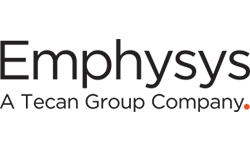 Manufacturing & MaterialsWhere162A
Manufacturing & MaterialsWhere162A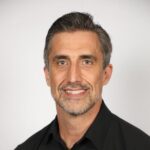 11:30 AM - 12:15 PM
11:30 AM - 12:15 PMMedTech on the Move: Next-Generation Mobile Patient Monitoring
By Oliver Astley CTO Monitoring Solutions | GE HealthCare, Stan Schneider, PhD CEO | Real-Time Innovations (RTI)Next-generation MedTech systems have made generational leaps in connected, intelligent functionality, leading to improved patient diagnostics, care and outcomes. Yet despite the gains, patients are largely still tethered to the hospital bed, slowing down the recovery process.
Portrait™ Mobile by GE HealthCare was approved by the FDA in 2023 as a first-of-its-kind, continuous monitoring solution that enables patients to move around the hospital while providing uninterrupted oversight. Real-time, uninterrupted data flow monitors vital signs regardless of where the patient is, providing continuous trending and actionable alarms for immediate event detection and treatment.
The backbone of Portrait Mobile is data-centric software that is based on Data Distribution Service (DDS™), the publish-subscribe middleware standard. This data-centric software architecture enables flexible, real-time and continuous connectivity for mobile monitoring. The data framework also addresses the simultaneous and demanding interoperability, reliability, cybersecurity, safety and performance requirements.
This talk will provide an introduction to DDS, followed by a discussion of how DDS is used in Portrait Mobile architecture to deliver highly-reliable information flow over a mobile, distributed system.
Sponsored By
 New Tools & TechWhere162B
New Tools & TechWhere162B 11:30 AM - 12:15 PM
11:30 AM - 12:15 PMHow to Get a Physician to Adopt Your New Medical Technology
By Christoph Eigenmann CEO | icotec Medical, Inc., Joanna Xylas, PhD Vice President, Market Development | Brixton Biosciences, Mike Monovoukas CEO, Co-Founder | AcuityMDMedtech companies face an uphill battle when launching a new product. A major challenge: finding doctors who will not only try your technology, but advocate for it. Join this panel discussion with medical device executives who have proven experience introducing new technologies to the market, identifying the right physicians for their products, and facilitating collaboration between marketing to sales as they scale.
Sponsored By
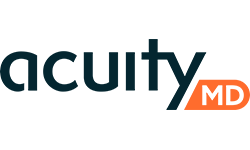 Bringing Products to MarketWhere159
Bringing Products to MarketWhere159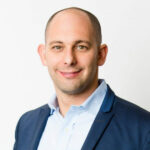 11:30 AM - 12:15 PM
11:30 AM - 12:15 PMHow IP Can Drive Funding & Exits
By Elon Boms Managing Director | PV Capital Management, Addie Harris CEO | Haventure, Roman Fayerberg Shareholder | Greenberg Traurig, David Dykeman Shareholder | Greenberg TraurigJoin medtech VCs and CEOs as they delve into strategies for positioning your medtech company to attract investors, collaborators, and acquirers. Intellectual Property (IP) is critical for medtech companies to attract funding, strategic partners, and navigate an exit through M&A or IPO. To become attractive funding or M&A targets, medtech companies must prioritize de-risking and aligning their commercial, regulatory, and IP strategies. Gain insights into best practices and pitfalls to avoid when building strategic patent portfolios to close funding, stay competitive, and secure a successful exit.
Sponsored By
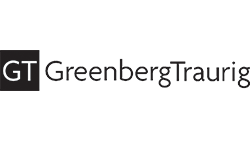 Where160ABC
Where160ABC- 12:15 PM - 1:45 PM
Lunch and Networking Break
- Distalmotion is a medical device company founded in Lausanne, Switzerland with a mission to empower robotic surgery to more hospitals, surgeons, and patients worldwide. Distalmotion is commercial with multiple installations across France, Germany, and Switzerland. Its surgical robot Dexter® is designed to offer Simplicity, Accessibility and Excellence. It delivers the benefits of robotics to more hospitals by being simple and straightforward to use, and more accessible as a modular, small format, and open system. As an open system, Dexter is designed to work natively with third party 3D imaging systems, energy devices, vessel sealers and other laparoscopic devices. It has a suite of fully wristed single use instruments providing the user with dexterity, precision of movement, reliable instrument performance, and lower reprocessing requirements.Bringing Products to MarketWhere159
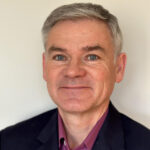 1:45 PM - 2:30 PM
1:45 PM - 2:30 PMCan New Technologies Expand the Emerging IVL Market?
By Sean Gilligan COO | Amplitude Vascular Systems (AVS), Scott Nelson CEO | FastWave MedicalNew Product DevelopmentWhere161 1:45 PM - 2:30 PM
1:45 PM - 2:30 PMNew Approaches to Solving the Sterilization Challenge
By Andrew Patton CEO | NextBeam, Thomas Kroc, PhD Applications Physicist, Technology Development | Fermilab, CL Tian CEO | Phiex TechnologiesManufacturing & MaterialsWhere162A 1:45 PM - 2:30 PM
1:45 PM - 2:30 PMWhere Sensors and other New Tech Will Drive the Orthopedics Industry
By Tom Waddell Chairman | TheraTec, Bill Hunter CEO, President | Canary Medical, Ashish Shah Vice President of Research, Development and Engineering | Viant Medical, Bill Betten Director of Medtech Solutions | S3 Connected HealthNew Tools & TechWhere162B 1:45 PM - 2:30 PM
1:45 PM - 2:30 PMMedTech Innovator All-Stars, Session 2: Control & Enroll
By Sahan Ranamukhaarachchi CEO, Co-Founder | Proton Intelligence, Harlee Sorkin CEO | InterShunt Technologies, Inc., Joanna Nathan CEO & Co-founder | Prana Thoracic, Marc Zemel CEO | Retia Medical, John Wong CEO | Fluid Biomed, Aswin Gunasekar CEO | Zeto, Inc., Cody Simmons, MS CEO | DermaSensor, Carolina Aguilar CEO & Co-Founder | INBRAIN Neuroelectronics 2:45 PM - 3:30 PM
2:45 PM - 3:30 PMBeyond the Algorithm: The Path to Successful AI Integration in Healthcare
By Richard Lett VP of Healthcare Technology | GlobalLogic, Radu Iancu, MD, PhD CEO | KeborMed, Michael Pereira Fractional COO/Executive Advisor | KeborMedIn the rapidly evolving landscape of digital health, the integration of artificial intelligence (AI) into digital health solutions presents an exciting frontier full of potential. Yet, the path from an innovative AI algorithm to a fully deployed, scalable, and regulated medical software solution is fraught with complexity. Our panel discussion, “Beyond the Algorithm: The Path to Successful AI Integration in Healthcare," aims to demystify this journey, shedding light on the multifaceted challenges and considerations inherent in bringing AI-based or AI-enhanced digital health solutions to market. The conversation will delve into critical aspects beyond the development of cutting-edge algorithms, including the hurdles of accessing training data, deploying these technologies within stringent regulatory frameworks, and scaling operations across diverse geographic regions. With the FDA increasingly specifying guidelines for the training, deployment, and post-market management of AI solutions in healthcare, our discussion will provide insights into navigating these regulatory waters. Participants will learn about the essential steps for practically and compliantly integrating AI into digital health solutions. Join us to explore how to successfully integrate AI into your digital health solutions, ensuring your innovations can thrive in the highly regulated world of medical technology.
Sponsored By
 New Tools & TechWhere162B
New Tools & TechWhere162B 2:45 PM - 3:30 PM
2:45 PM - 3:30 PMAccelerating Time-to-Market: Creating Leverage Through Strategic Partnerships
By David Hemink CEO | VelosityMakers of even the most disruptive new devices may have a difficult time gaining share in markets where large device companies dominate. But hope is not lost. Start-ups can deploy innovative new tools and tactics to level the playing field. In this panel, chief commercial leaders will share the tricks of the trade that are helping them build a business. Sponsored By
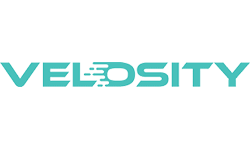 Bringing Products to MarketWhere159
Bringing Products to MarketWhere159 2:45 PM - 3:30 PM
2:45 PM - 3:30 PMMedTech Legal & Regulatory Lightning Round
By Steven Tjoe Partner | Goodwin, Matt Wetzel Partner | GoodwinMedtech lawyers Matt Wetzel & Steve Tjoe will share their views in a lightning round talk format on the top legal and regulatory issues facing the medtech and diagnostic industry today, developments we can expect in 2024, and key watch-outs for the industry. Leveraging their combined experience, Steve (previously a lawyer at FDA’s CDRH) and Matt (former AdvaMed Deputy GC and GRAIL Chief Compliance Officer), will highlight several areas, including continued enforcement actions related to customer relationships; FDA’s diagnostic and laboratory developed test (LDT) initiatives, third-party litigation funding, ethylene oxide & sterilization, proposals to bridge the coverage “valley of death,” integrity of third-party generated data, and top trends in digital health regulation.
Sponsored By
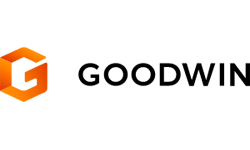 Where160ABC
Where160ABC 2:45 PM - 3:30 PM
2:45 PM - 3:30 PMHow Miniaturization is Changing MedTech
By Brent Hahn Vice President & General Manager | Isometric Micro Molding, Inc.We have seen significant growth in miniaturized medical device applications in recent years with the increased need for reducing size and adding complex components in small spaces. Products including wearables, self-diagnostics, drug delivery, robotic surgery and sensors are driving next generation device functionality and platform intellectual property. This talk will provide case studies and answers to common question in micro molding components and micro automated assembly for device miniaturization.
Sponsored By
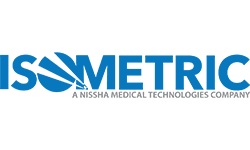 Manufacturing & MaterialsWhere162A
Manufacturing & MaterialsWhere162A 2:45 PM - 3:30 PM
2:45 PM - 3:30 PMMedical and Drug Delivery Device Design for Biocompatibility
By Mark Burchnall Engineering Director | PSN Labs, Matthew Heidecker, PhD Vice President and Principal Scientist | PSN LabsLearn how to incorporate biocompatibility testing into the design process of medical devices and drug delivery systems, aligning with ISO 10993 and other relevant standards. This presentation by PSN Labs provides guidance on material selection, manufacturing techniques, and device design to ensure biocompatibility from early development stages. Discover how to address evolving regulations and scientific advancements to prevent late-stage biocompatibility issues in the final product. Gain insights into strategies for identifying appropriate biological evaluation plans based on device classification. By integrating biocompatibility considerations into design, manufacturers enhance patient safety, streamline regulatory compliance, and minimize risks of delays and recalls. Join us to explore key aspects of biocompatible device design and learn how to proactively address challenges for successful product development.
Sponsored By
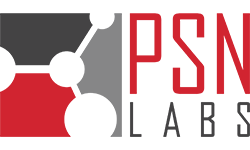 New Product DevelopmentWhere161
New Product DevelopmentWhere161- 3:30 PM - 4:15 PM
Expo Floor Tailgate
Visit booths on the expo floor for free drinks and networking! More details to come. Participating Booths: #401 - Sager Electronics #310 - PTC ArenaWhereExpo Floor  4:15 PM - 5:00 PM
4:15 PM - 5:00 PMIntuitive: The Future is Now with da Vinci 5
By Brian Miller EVP, Chief Digital Officer | IntuitiveKeynoteWhere160ABC- 5:00 PM
Exhibit Hall Closes
WhereExhibit Hall C - 5:00 PM - 6:00 PM
Networking Reception
Connect with MedTech colleagues from around the world to recap Day 1 of the show, catch up with old friends and create new connections.
Tickets required; free to All-Access Sponsors, Speakers, and All-Access pass holders. $45 for Expo Only Sponsors and Expo Only Pass holders that purchase pre-event. $60 tickets purchased on site
Sponsored By
 WhereSE Pre-function Level 1
WhereSE Pre-function Level 1
 8:00 AM - 9:00 AM
8:00 AM - 9:00 AMWomen in MedTech Breakfast
By Nina Goodheart Sr. VP and President, Structural Heart & Aortic | Medtronic, Kayleen Brown Managing Editor | DeviceTalksJoin medtech industry peers for an hour of networking, engagement, and mentorship (and food and drink, of course). Find a mentor, reach out to a new contact, reconnect, and help foster a movement that needs more female leadership at all levels. Featuring a fireside chat with Medtronic's Nina Goodheart. Thank you to our Sponsor, Aptyx, and our Supporting Partners: MassMedic, MedtechWOMEN, MedTech Color, MedTech Innovator, and The Mullings Group.
Ticket required; Open to all-access pass holders, speakers and sponsors – $25/person (limited availability, must be purchased pre-event)
Sponsored By
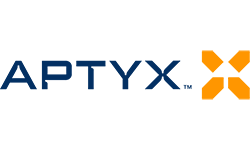
 Where162A
Where162A- 8:30 AM - 4:00 PM
Registration Hours
Sponsored By

 9:00 AM - 10:00 AM
9:00 AM - 10:00 AMTransforming surgery with Versius: bringing robotic assisted surgery to patients worldwide
By Luke Hares Co-Founder, CTO | CMR Surgical, Mark Slack, MD Co-founder and CMO | CMR Surgical, Supratim Bose CEO | CMR SurgicalIn this panel, we’ll talk with the executive team leading CMR Surgical’s global launch of Versius, a robotic surgical system designed to assist surgeons perform laparoscopic surgery. How does Versius’ design, functionality and size differ from other systems currently in the market?KeynoteWhere160ABC- 10:00 AM
Exhibit Hall Opens
- 10:00 AM - 10:30 AM
Networking Break
WhereExhibit Hall C 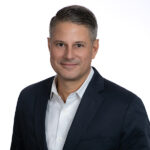 10:30 AM - 11:15 AM
10:30 AM - 11:15 AMHow Stryker Is Building on MAKO's Surgical Robotics Success
By Erik Todd Vice President & General Manager - Robotics & Enabling Technology | StrykerWhere162B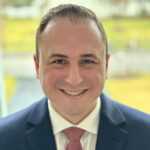 10:30 AM - 11:15 AM
10:30 AM - 11:15 AMHow Medtech StartUps Can Fight for – and Win - Market Share
By Matthew Papagno CEO | Clozex Medical, Jantzen Cole VP of Marketing | Artelon, Brennan Marilla Chief Commercial and Operating Officer | Ossio, David Carey Chief Commercial Officer | Pristine SurgicalMakers of even the most disruptive new devices may have a difficult time gaining share in markets where large device companies dominate. But hope is not lost. Start-ups can deploy innovative new tools and tactics to level the playing field. In this panel, chief commercial leaders will share the tricks of the trade that are helping them build a business.Bringing Products to MarketWhere161 10:30 AM - 11:15 AM
10:30 AM - 11:15 AMBuilding a Sustainable Strategy for Device Manufacturing
By Eileen Buckley VP, Corporate Responsibility | Stryker, Kathryn Unger VP, Environmental, Social and Governance | Boston ScientificManufacturing & MaterialsWhere162A 10:30 AM - 11:15 AM
10:30 AM - 11:15 AMHow Medtech and Pharma Companies Are Laying the Foundation for AI, Future Tech
By Cody Simmons, MS CEO | DermaSensor, Helen Merianos, Phd Global Head of R&D Strategy and Portfolio Management | Sanofi, Ha Hong, PhD Chief Artificial Intelligence Officer, Endoscopy | Medtronic, Sandra Nagale, PhD Director of Digital Health Platforms and Products | Boston ScientificAI's potential for disrupting the medical device industry is undeniable. Major players are making strategic moves to solidify their position in the future of medtech: acquisitions, newly established executive roles devoted to AI, and partnerships with tech leaders like NVIDIA all signal a commitment to integration. This session will feature AI leaders from Medtronic, Boston Scientific, and Sanofi sharing insights into their AI strategies, specific use cases showcasing current successes, and their vision for how AI will reshape the industry in years to come.New Tools & TechWhere159 10:30 AM - 11:15 AM
10:30 AM - 11:15 AMMedTech Innovator All-Stars, Session 3: Detect & Reflect
By Eric Dy, PhD CEO & Co-founder | Bloomlife, Jeff Pompeo President & CEO | Caretaker Medical Inc., Sam Frishman CEO | MDC Inc., Gina Kelly CPO | OtoNexus Medical Technologies, Bobby Reddy CEO & Co-founder | Prenosis, Neil Ray, MD CEO | Raydiant Oximetry, Inc, Jeremy Stackawitz CEO | Senzo 11:30 AM - 12:15 PM
11:30 AM - 12:15 PMMaster the Machining of Complex Micro Components for Robotic Assisted Surgery
By Cassandra Haupers Director of Global Business Development, Machining | Vantedge, Blake Forsberg NPI Program Manager, Machining | Vantedge, Nicole Ramus Vice President, Global Sales | VantedgeYou don't know what you don't know. When it comes to micro component design and development, what seems like a minor decision can make a major impact on the cost, manufacturing efficiency, and repeatability of your product. Join our machining and metals-based manufacturing experts as they discuss how material selection, reviewing your design with the end user in mind, rapid prototyping, designing for automation and scalability, and more can influence the success of your RAS project.
Sponsored By
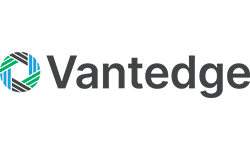 Where162B
Where162B 11:30 AM - 12:15 PM
11:30 AM - 12:15 PMHow to Ensure Your Component Suppliers Can Support Medical Device Development and Production Challenges
By Scott Herskovitz President & CEO | Qosina Corp, Richard Rodgers Vice President, Engineering R&D | Primo Medical Group, Cynthia George Sr. Director of Program Management / Material Planning | Instylla Corporation, Jeff Cushner Vice President of Sales | Qosina CorpInnovation is expensive, and third-party component suppliers are an integral part of the make or buy decision along the R&D journey toward commercialization and manufacturing of new medical devices. Join us for a discussion about evaluating the onboarding of new suppliers and products, quality and change control, supporting documentation, safety stock and business continuity.
Sponsored By
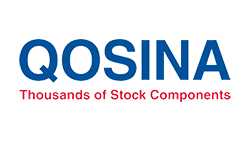 Where162A
Where162A 11:30 AM - 12:15 PM
11:30 AM - 12:15 PMGiving Medical Device Companies an Edge through Seamless Interoperability
By Joerg Schwarz Sr. Director, Industry Strategy & Solutions, Healthcare Interoperability | Infor, Jeff Mueller GM/VP – Enterprise Interoperability – Life Science Medical Device | Infor, Heather Hudnall, BSN, RN Chief Nursing Informatics Officer | NTT DATA Services, David Böttcher-Bæk Head of Connected Health | Phillips-MedisizeTop medical device companies use Infor’s Cloverleaf® Integration Suite to streamline operations, drive innovation, and establish a unified platform strategy. Over 500,000 connected applications and more than 1.5 billion messages pass through Cloverleaf every day. Join us for an enlightening panel discussion with industry experts as we explore the crucial differences between connectivity and interoperability in medical devices to drive optimized clinician workflows and patient outcomes.
Key Discussion Points: 1. Insights from Phillips-Medisize on achieving medication management by focusing on four key pillars (Useful, Useable, Meaningful, and Viable), adherence support, and remote device analytics, enabling product owners to concentrate on patient behavior and device performance in the market. 2. Understanding how interoperability leads to informed decision-making. 3. How interoperability enhances your platform strategy to support intelligent devices in AI/ML healthcare. 4. NTT Data’s Lead for Data-Driven Health shares thoughts on the impact of interoperability and explains why medical device data is more crucial now than ever before.
Sponsored By
 Where159
Where159 11:30 AM - 12:15 PM
11:30 AM - 12:15 PMSmart Implants – New Frontiers, Trends & Innovation Strategies
By Sergio Malorni Sr. Consultant, Head of Surgical | Cambridge Design PartnershipRecent years have seen exciting developments in smart implants – from closed-loop neuromodulation systems, wirelessly connected artificial joints, dual-chamber leadless pacemakers, to brain-computer interfaces. Many more are on the way, fuelled by a fusion of biomedical research, new technology and ambitious innovation. In this talk we review the emerging landscape of implantable therapies, where trends are taking us next, and offer strategies to navigate the challenges and complexities of this space while meeting the needs of patients, regulators and innovators.
Sponsored By
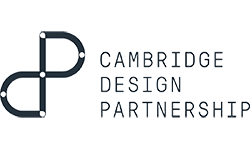 Where160ABC
Where160ABC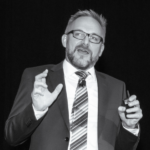 11:30 AM - 12:15 PM
11:30 AM - 12:15 PMForging the Future: How advancements in technology, robotics, and sustainability intersect with sterilization
By Mads Olsen VP, Global Market Development, MDM/S&I | ASP, Ivan Salgo, MD Vice President, Chief Medical & Scientific Officer | ASP, Chad Rohrer Global President | ASP, Pierre Emeric VP of Research and Development | ASP, Pam Congemi Vice President, Human Resources | ASPThis conversational panel will cover the following topics: -Pierre Emeric will describe how ASP is partnering with robotics companies to co-develop materials and cycles to adapt to the specific emerging needs of these companies. -Dr. Ivan Salgo will address the Margin of Safety in Medical Devices as a Competitive Differentiator -Pam Congemi will speak on culture as a powerful catalyst for innovation.Where161- 12:15 PM - 1:30 PM
Lunch and Networking Break
WhereExhibit Hall C  1:30 PM - 2:15 PM
1:30 PM - 2:15 PMInnovative Tech Helping Ease Healthcare Staffing Shortages
By Nancy Moureau, PhD, RN, CRNI, CPUI, VA-BC CEO | PICC Excellence, Dan Clark CEO | Linear Health Sciences, Michelle DeVries, MPH, CIC, VA-BC, CPHQ, FAPIC Sr. Infection Control Officer | Methodist Hospitals & Sr. Adjunct Research Fellow | AVATAR , Jim Biggins CEO | Access VascularThe shortage of nursing staff is proving to be an intractable problem for the U.S. healthcare system, both in terms of cost and, most importantly, negative impact on patient care and outcomes. In this panel, panelists will explore the scope of the problem and identify how a multi-pronged, device-driven strategy can help by streamlining care workflows, lowering costs, and improving patient outcomes.New Tools & TechWhere162A 1:30 PM - 2:15 PM
1:30 PM - 2:15 PMVenture Capital Investor Panel
By Mike Carusi General Partner | Lightstone Ventures, Dan Sheehan Vice President, Venture Capital | Medtronic, Nikita Gaurav Investor | Necessary VenturesInnovation & Investment ForumWhere160ABC 1:30 PM - 2:15 PM
1:30 PM - 2:15 PMHow Medtronic Structural Heart & Aortic Is Working to Improve Access and Equity to Life-saving Technologies
By Nina Goodheart Sr. VP and President, Structural Heart & Aortic | MedtronicMedtronic and its Structural Heart and Aortic teams are committed to driving healthcare equity and improving access around the world to life-saving technologies for patients with heart disease. However, these technologies are only as impactful as the ability to bring them to the patients and communities that need them most. Through clinical trials targeting participation from underserved communities, Medtronic is looking specifically at how heart disease affects women and ethnic minority groups differently, and how that data can potentially re-shape the future of treatment for underserved populations with heart disease.New Product DevelopmentWhere161 1:30 PM - 2:15 PM
1:30 PM - 2:15 PMHow Quantum Surgical Plans to Bring Robotics to the Fight Against Cancer
By Bertin Nahum Co-Founder, CEO | Quantum SurgicalBringing Products to MarketWhere159 2:30 PM - 3:15 PM
2:30 PM - 3:15 PMPassing the Baton: Stories of CEO Succession
By Tal Wenderow Venture Partner | Genesis MedTech, Holly Scott Vice President and Senior Partner | The Mullings Group, Paul Grand CEO | MedTech Innovator, Marissa Fayer CEO | DeepLook MedicalMany medtech startup founders reach a point where experience outweighs entrepreneurship and a new CEO is needed to push their company forward. In this session, a panel of seasoned medtech leaders share the important lessons they learned to ensure a smooth hand off and to find the fastest path to the finish line.Where160ABC 2:30 PM - 3:15 PM
2:30 PM - 3:15 PMBuilding the Next Generation AI/ML Software Factory for MedTech
By Erez Kaminski Founder and CEO | Ketryx, Emre Gültürk VP of RA/QA | Heartflow , Mira Sahney President, Pelvic Health | MedtronicSponsored By
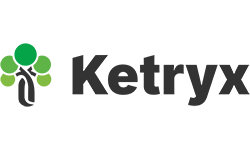 Explore how teams can build AI/ML software with the same scale, safety, and process control seen in medical device and pharmaceutical factories. Experts will discuss the spectrum of AI/ML applications in MedTech, the validation and governance challenges of AI-enhanced software, and the impact of the Predetermined Change Control Plan (PCCP) on innovation. Panelists will also share their thoughts on how open-source software, continuous integration and deployment (CI/CD), and automation are crucial for building next generation software factories.Where161
Explore how teams can build AI/ML software with the same scale, safety, and process control seen in medical device and pharmaceutical factories. Experts will discuss the spectrum of AI/ML applications in MedTech, the validation and governance challenges of AI-enhanced software, and the impact of the Predetermined Change Control Plan (PCCP) on innovation. Panelists will also share their thoughts on how open-source software, continuous integration and deployment (CI/CD), and automation are crucial for building next generation software factories.Where161 2:30 PM - 3:15 PM
2:30 PM - 3:15 PMAI: The New Partner in Medical Device Development
By Rick Brooks R&D Leader, Medical Device Solutions | BattelleThe BioPharma R&D pipeline is increasingly witnessing next-generation therapies based on new modalities such as CRISPR, mRNA, BiTEs and engineered cell and gene therapies. Many of these therapies work phenomenally better or require by design to be delivered directly to the organ, affected tissue or tumor environment. One of the key priorities in medical device research and development is to create minimally invasive interventional procedures for delivering drugs to difficult-to-access anatomies. Interventional procedures aided by general surgical robotics has the potential to improve reliability, reduce complexity and create a less invasive approach. This session will highlight how these next gen drug delivery systems designed around installed surgical robotic capabilities, streamline device development, reduce costs, while accelerating training and deployment time.
Sponsored By
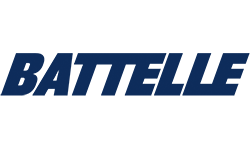 Where159
Where159 2:30 PM - 3:15 PM
2:30 PM - 3:15 PMPropelling the Future of Robotic Surgery Through Partnerships
By Mike Springer Vice President of Emerging Technologies | Nissha Medical Technologies, Ryan Thomson Technical Sales Engineer | Nissha Medical TechnologiesThis session will provide an in-depth exploration of the dynamic landscape of emerging technologies in medical devices and their transformative impact on healthcare. The speakers, led by Mike Springer, Vice President of Emerging Technologies at Nissha Medical Technologies, and joined by Ryan Thomson, Technical Sales Engineer, will focus on strategic initiatives that are shaping the next generation of medical devices. They will delve into the specifics of cutting-edge visualization technology customization and increased anatomical access through advanced steering technology, providing specific clinical applications and innovative examples that are currently making waves in the industry.
A highlight of the presentation will be a discussion on the significant advantages of academic collaboration in driving innovation in this field and helping educate the next generation of skilled clinicians and surgeons. The speakers will also detail the impacts to surgical robotics platforms, offering insights into how visualization and steering technologies are revolutionizing these procedures and improving patient care.
Sponsored By
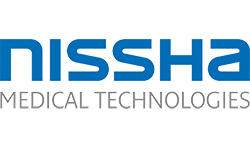 Where162A
Where162A 3:30 PM - 4:30 PM
3:30 PM - 4:30 PMRobots and Beyond: The future of surgery
By Rajit Kamal VP and GM, Robotic Surgical Technologies | MedtronicRobots. Artificial intelligence. Real-time. Remote. We can only predict what surgery will look like in 50 or 100 years, but one thing will always be true: the patient and surgeon will always be at the center. It is a serious and even sacred relationship. And the same is true for the surgeon and the technology they use. It’s not about the bits or bytes, it’s about how the tools help best meet each patient’s unique needs, to deliver the best possible outcome. Join Rajit as he goes beyond robots to explore the fascinating and exciting intersection of people and technology shaping the future of surgery. Spoiler, there will be robots and AI—and beyond.KeynoteWhere258ABC 4:30 PM - 5:00 PM
4:30 PM - 5:00 PMHear the Final Word about DeviceTalks Boston: Live Recording of DeviceTalks Weekly On-Stage
By Kayleen Brown Managing Editor | DeviceTalks, Paul Melnychuck VP & GM, Spectrum Medical Device, Advanced Components | Spectrum Plastics Group, A DuPont Business, Chris Newmarker Editor-in-Chief | MassDevice, Tom Salemi Editorial Director | DeviceTalksSponsored By
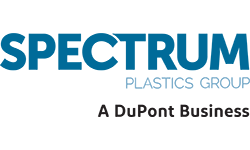 Where160ABC
Where160ABC
Life Science Network
Resources
Subscribe to MassDevice
Advertise with us
For registration or logistic questions, contact events@wtwhmedia.comSponsorship Opportunities
Colleen Sepich
Event Sales Director
csepich@wtwhmedia.com
857-260-1360
Heather Herbert
Event Sales Manager
hherbert@wtwhmedia.com
512.760.0570

